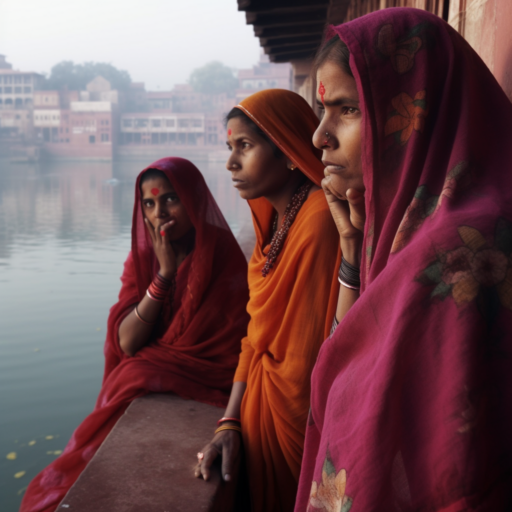Sitemap: Living abroad > India
In this page, we’ll talk about key ideas for expats in India, such as:
- Cost of Living in India
- Culture in India
- Expat Life in India
- Expat Communities in India
- Taxes in India
- Investing in India
Investing and living in India offers foreigners several opportunities. India offers a unique culture, but comprehending the cost of living is crucial.
We examine some of the best hospitals as the healthcare system improves, and expats investigate private solutions. Looking at international schools is also important.
Comfortable expat life requires navigating transportation, climate, and culture. Find major expat hubs and communities.
Research expat taxes, work permits, and top industries. Consider India’s stock market, real estate, and business opportunities.
This complete guide to expat life in India also covers banking, retirement, financial planning, and insurance.
If you are looking to invest as an expat or high-net-worth individual, which is what I specialize in, you can email me (advice@adamfayed.com) or WhatsApp (+44-7393-450-837).
Living in India
Cost of Living in India
Monthly living costs in India are much higher than in the UK. According to iExpats, without housing, a family of four needs Rs90,737 (£910), and an individual needs Rs26,487 (£266).

Renting is 82.3 percent cheaper than buying, and consumer costs are 64.1 percent lower than the UK average.
The chosen location affects living conditions, services, and everyday expenses due to India’s 1.269 million square miles.
Larger cities are more expensive but have better infrastructure (drainage, power, transportation), more work possibilities, and reduced living costs, saving expats money.
Related Content: How to move to India: Costs and Other Basics
Healthcare in India
The Indian government provides free healthcare, but understaffing and financing issues plague it. Visa applicants should choose private healthcare, which is often required.
Long-term Indian residents who qualify for the National Health Protection Scheme may receive free private treatment, helping low-income families.
Private healthcare is affordable. Expats visiting rural India should have comprehensive health insurance, and while local plans are available, international insurers are safer.
Education in India
Indian state-run and private schools have different standards and curricula, making school selection challenging. Competitive and dishonest admissions.
English instruction varies in free public schools for 6–14-year-olds, which lack funds and space. Private English-speaking schools differ in cost, quality, and curriculum.
Many have large lineups due to their popularity. Swashikshan-backed assessments are compulsory for regular schools. However, homeschooling is allowed.
With the same curriculum, adequate facilities, and expat teachers, expats prefer international schools in India. High pricing and scarcity are challenges.
Related Content: 29 Best International Schools In India
Transportation in India
India has rickshaws, buses, and taxis, although prices vary, especially with smaller providers. Negotiate metered cab fares ahead of time.
Consider long-distance rail, which is cheap, fast, safe, comfortable, and spacious. British citizens abroad can drive for a year with a British license and International Driving Permit, depending on the jurisdiction.
Avoid nighttime travel, drive in well-maintained cars with seat belts, and be careful in big places and around livestock, especially sacred cows, because accidents are common.
Climate in India
The northeastern highlands of Himachal Pradesh, Jammu & Kashmir, and Sikkim have continental climates, unlike much of India.
Most places get summer from April to October, with June temperatures above 45°C. In June, the monsoons bring thunderstorms and torrential rain that can flood the Brahmaputra and Ganges.
Rajasthan’s northern plains often drop below five degrees celsius in December and January. Though summers are pleasant, high-altitude northern alpine regions get snow all winter.
East Coast typhoons are rarer and more common from August to November.
Culture in India
Most Westerners are shocked by India’s crowds, poverty, beggars, filth, and loudness. Despite the sensory overload, visitors love the country’s liveliness.
The majority of India’s population is Hindu, although other religions coexist with Hinduism, exhibiting religious tolerance.
Temples, mosques, and churches coexist nationwide. The Hindu caste system is banned, although rural regions still have traces.
Cultural hurdles, more than legal victories, motivate women to dress modestly in densely populated and tiny communities to prevent harassment.
Expat Life in India
The country is growing rapidly and offers several professional chances in various fields. This means natives and newcomers have more job prospects.
People living and working outside India work in education, marketing, sales, and other sectors. Spiritualists, artists, CEOs, and leaders of global corporations are also among them.
Expat Communities in India
Mumbai
As India’s financial capital, Mumbai attracts expats with its bustling business opportunities, diverse culture, and vibrant nightlife.
Delhi
The capital city, Delhi, is a hub for expats due to its historical significance, diplomatic presence, and cosmopolitan lifestyle.
Related Content: A Guide for Living in Delhi India for Foreigners
Bangalore
Known as the Silicon Valley of India, Bangalore is a tech hub that draws expats seeking employment in the IT sector and a pleasant climate.
Chennai
With a strong industrial base and a growing IT sector, Chennai attracts expats looking for employment opportunities and a rich cultural experience.
Hyderabad
Renowned for its IT and business landscape, Hyderabad appeals to expats with its modern amenities, historical sites, and affordable cost of living.
Pune
As an educational and IT center, Pune lures expats with its pleasant climate, quality of life, and burgeoning startup ecosystem.
Goa
Known for its picturesque beaches and laid-back lifestyle, Goa is a popular destination for expats seeking a relaxed environment and a diverse expat community.
Expat Taxes in India

Foreigners coming to India must submit Permanent Account Number (PAN) applications to the Indian Income Tax Authority.
The Foreigners Regional Registration Office requires proof of application upon arrival because PANs take 15 days.
Most expats are non-residents or residents who do not live for the first two tax years, calculating their income tax liabilities.
India utilizes income tax “slabs,” like UK rates, for the next assessment year. Tax brackets from 2023–24 apply to 2024–25.
Visa in India
All foreigners except confirmed OCI with a registration card need a visa to visit India. Without a permit, you might be arrested, deported, and banned from returning.
The Indian Bureau of Immigration issues e-visas based on stay, confirmed work offers, and Indian family members.
UK expats need London High Commission of India appointments for long-term or permanent residence visas.
Visits above 180 days require student and employee visas. Visa types must be registered with the Foreign Regional Registration Office within 14 days of arrival, with fines for late registration or failing to deliver the registration certificate.
Working in India
India has long workweeks; full-time expats work 47.7 hours vs. 43.9 in the UK and the US. After decades in parliament, women remain underrepresented in the workforce, making female expats a minority. Globally, women in business are treated fairly.
Indian corporate culture promotes connections. Thus, small talk and seemingly personal questions about families and lives are common. Most people remember their children’s and pets’ names, which can help in negotiations.
Related Content: Working In India As An Expat
Work Permit for Expats in India
Working in India requires a permit and visa. Experts can easily collect these documents, but employers handle the application.
Self-applicants must submit papers online or in person to the nearest embassy. The five-year Employment Visa needs Indian employer registration and $25,000 yearly compensation.
This may reject administrative or secretarial applications. Employment, travel, and professional qualifications are needed for e-visas.
The procedure stresses employer support and legal compliance for a successful Indian career.
Investing in India
India consumes a lot of oil, so high oil prices increase inflation risk, but its strong economy helps it weather global fluctuations.
Record foreign exchange savings stabilize the rupee. As e-commerce hits $74.8 billion in 2023, India expects its digital economy to surpass $1 trillion by 2026.
With cheaper data plans and more Internet users, the nation is digitizing. E-commerce and education can grow, create jobs, and enhance the economy. Stock markets, digital manufacturing, and real estate draw investors to India.
Related Contents:
19 Best Alternative Investment Platforms In India
19 Best Online Trading Platforms in India
12 Best Investment Options In India
Is India a good place to invest?
Investing in India Stock Market

Following a solid November, the Indian stock market rose in December 2023. Ascending to the seventh-largest market globally, the Nifty 50 index showed market resilience.
The market outperformed foreign competitors and reached new highs in some areas despite domestic and international problems.
Monetary policy, macroeconomic statistics, and strategic sectoral development boosted market optimism. Investors analyzed their positions amid changing possibilities and risks.
Related Content:
How to invest in the Indian Stock Market as an NRI?
4 Worst Performing Indian Stocks Of 2022
Investing in Real Estate in India
Indian real estate is still a popular business choice worldwide, but location, market trends, government legislation, and economic factors determine its success.
The National Housing Bank’s RESIDEX demonstrates steady growth in the private real estate sector, indicating strong returns.
India is urbanizing rapidly due to increased jobs and living standards. This increases housing and commercial demand.
RERA and GST are government programs that clarify and attract investment. Infrastructure, foreign investments, reliable rental rates, cheap housing, and REITs attract investors to the sector.
Starting a Business in India
Starting a business in India has six critical steps. A thorough market study is needed to establish a business’s success, target audience, and competitors.
Second, the business’s size, purpose, and legal requirements determine its structure—sole proprietorship or private limited company.
Third, registering the firm requires government approval and a unique number. Use savings or starting capital to get money next.
Launch the company with clever marketing and market adaptability after assessing results and strategy. Receiving professional advice and criticism can help you succeed.
Banking in India
Indian banks offer savings, checking, loans, credit cards, and online payments. They accept different payment ways, hold money securely, and offer various loans.
Banks offer money exchange and safe deposit boxes. Mutual funds, stocks, and bonds let people spend and get rich.
Online and mobile banking simplify account viewing, bill paying, and money transfers. Indian banks are essential for money management due to their wide range of services for individuals and businesses.
Retiring in India
Indian culture, scenery, and inexpensive living costs attract expats to retire there. From bustling Mumbai to tranquil Shimla, retirees can choose their lifestyle. Indian festivals, sites, and rituals provide retirees with a taste of Indian culture.
The meal’s bold flavors and variety please everyone. Participating in local events and recreation can help retirees grow and explore.
Related Content: How To Apply For Repatriation To India: 6 Easy Steps
Pension in India for Expats
Indian pensions are largely for Indians; however, foreigners can consider them. International Social Security Agreements (SSAs) prohibit double taxation on overseas pensions.
The Employee Provident Fund (EPF) is largely for Indian workers; however, some expats may qualify. Indian insurance and banking companies offer voluntary pension plans for expats.
These programs provide optional retirement savings. Despite few criteria, these insurers give expats in India financial planning and retirement alternatives.
How to Get a Retirement Visa in India
India has a vast system of visas for specific occupations or nations but no retirement visa. A 180-day tourist visa can be extended by six months by leaving India for two months.
You can stay for a year or as long as your employment contract with a business visa. Ancestral Indians, spouses, and dependents of long-term visa holders can stay for five years.
Reapplying for a tourist visa after six years shows the variety of options for long-term visitors to India.
Financial Planning in India
Creating a complete financial plan in India requires several phases. Someone must first assess their financial status to determine where to start and if something is affordable.
Know your risk profile because it influences your investments and debt capacity. After that, define achievable short-, medium-, and long-term cash goals.
Emergency funds with 6–12 months’ worth of costs are essential for unexpected issues. Certified financial planners implement the plan and need rigorous commitment and punctuality.
The strategy should be reviewed and updated regularly to account for economic changes and potential issues.
Life Insurance in India
Even while things are improving, only 2.76 percent of Indians have life insurance, indicating modest market growth.
The low numbers are largely attributable to individuals not knowing the benefits of life insurance. Accidents show how fragile life is and how crucial systematic life insurance is to safeguard loved ones.
If someone you care about dies suddenly without life insurance, they leave rent, loans, EMIs, and child support. Life insurance protects families and gives them the trust and stability they need to live safely.
Health Insurance in India
Foreigners in India can’t access Ayushman Bharat public health insurance, which is reserved for Indians. This requires them to pay for public hospital care.
Despite higher costs, private hospitals and clinics provide better care. Healthcare differs greatly in rural and urban India. Medical care is limited to 70% of rural residents.
Things are improving, and natural medicine fills in the gaps. Medical infrastructure improvements may necessitate rural expats to purchase emergency transportation insurance to metropolitan hospitals.
Final Thoughts
For expats considering investing and living in India, embrace the vibrant culture but plan wisely. The cost of living is generally lower, and top-notch healthcare and education are available.
Join thriving expat communities, explore diverse climates, and appreciate India’s rich heritage. Understand the tax system, secure comprehensive health and life insurance, and explore lucrative job opportunities.
Whether investing in stocks or real estate or starting a business, India offers growth potential. Careful financial planning ensures a fulfilling expat life, making a living in India a rewarding experience for those ready for adventure and cultural immersion.
Pained by financial indecision?

Adam is an internationally recognised author on financial matters with over 830million answer views on Quora, a widely sold book on Amazon, and a contributor on Forbes.

